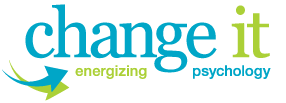In the early 1980s, psychologist Jim Loehr was trying to figure out the difference between tennis stars and those who played well but didn’t quite make it to the big time. He looked at many of their technical abilities and found no difference between the two groups. He finally found that what they did between scoring the points made the difference.
The tennis stars had specific routines that they had carefully crafted to help them let go of the point that had just been played and to prepare for the next point. He found that the other group did not have these routines. He realised what the stars did between points maximised their recovery; while the stars’ heart rates dropped by up to 20 beats per minute, the heart rates of the other group stayed high throughout the game.
In their book The Power of Full Engagement, Tony Schwartz and Loehr describe how the knowledge they developed from observing these athletes can be applied to life generally. Specifically, the book is about how to harness energy so that one is fully engaged in life.
One of the take-home messages is the importance of balancing stress and recovery; the idea is to take breaks, not just holidays once a year, but mini breaks (90 seconds) and micro breaks (10-15 minutes) throughout the day, where we disengage from our work and actively do something that will recharge us. Remember, the time between tennis points is short, but if regular and focused it can bring renewal.
For one client it is listening to a mindfulness exercise on her MP3 player in the park; for another it is using the stairs in her building to go outdoors; for someone else it is calling home and hearing what his young family are up to.
The authors recommend breaking work into 60- to 90- minute chunks then having a 15-minute break. While many people find this challenging to adjust to, the intensity of their engagement with work interspersed with short breaks of recovery, is said to be far more industrious than sitting hour-upon-hour at one’s desk with a list of tasks.
The creation of positive rituals around your stress and recovery time is likely to be a key to your productivity, whether at work or at home. Witness how supercharged you feel after a week without your laptop or mobile. Ironically, it is the ability to do multiple things at once that is lauded in society, yet research backs periods of focus, interspersed with recovery time.


